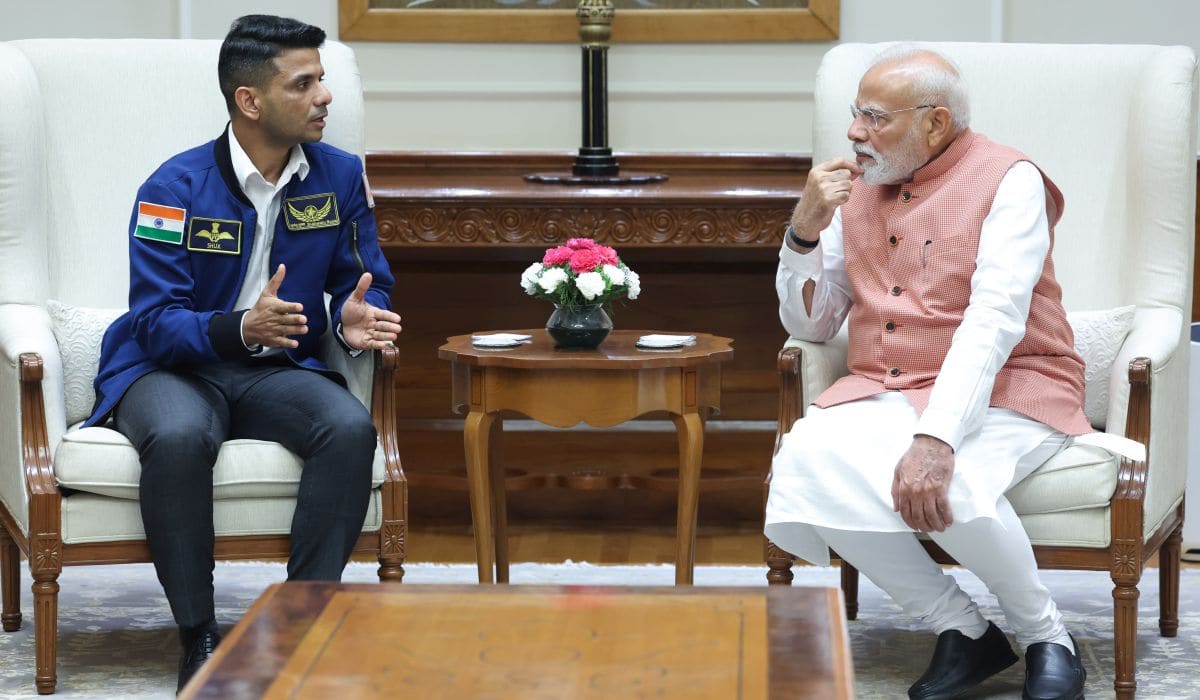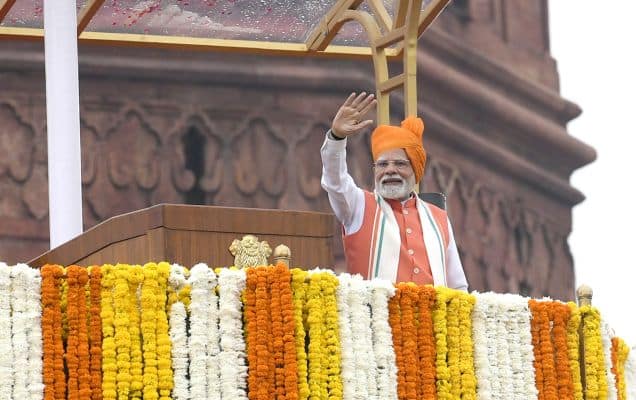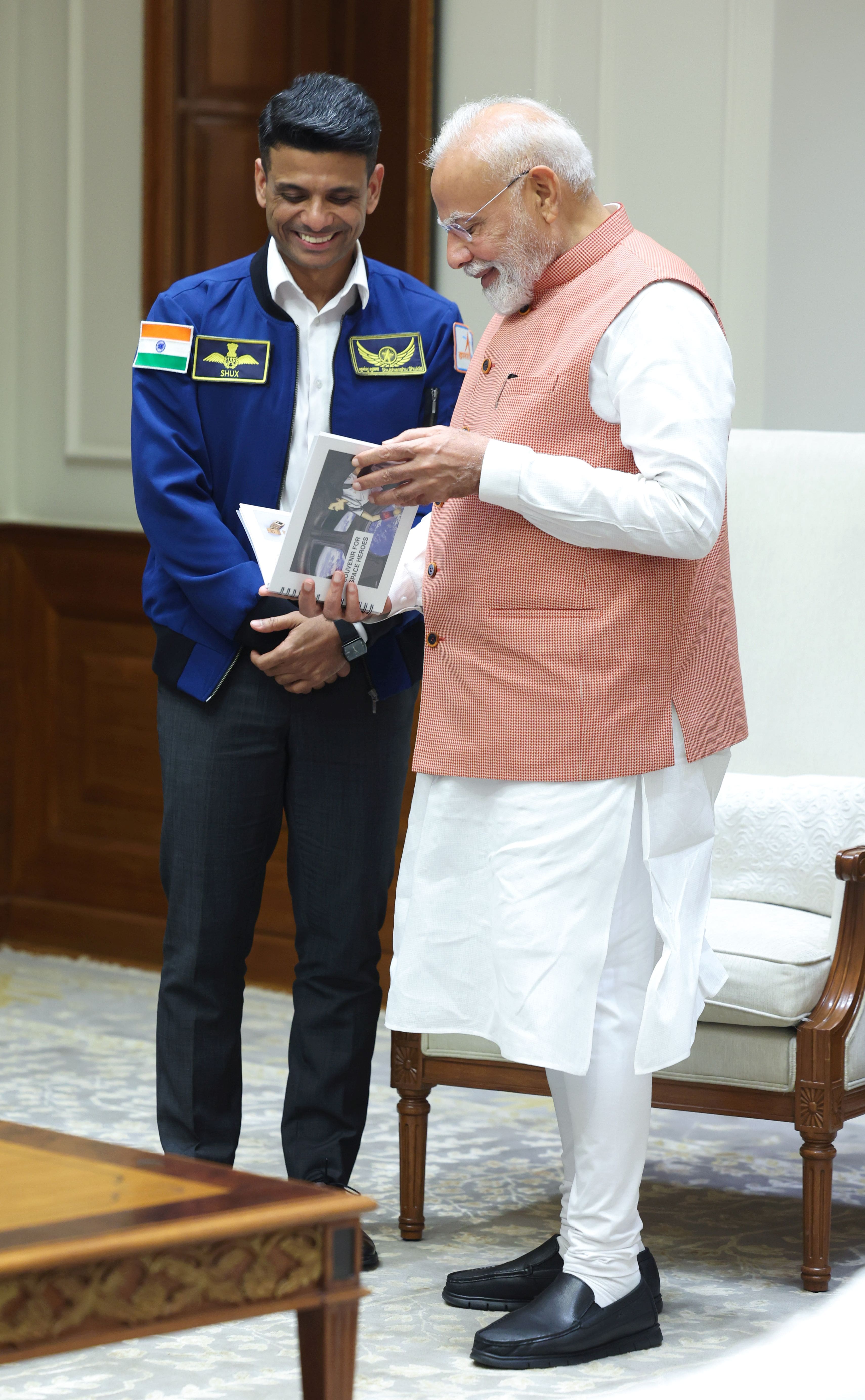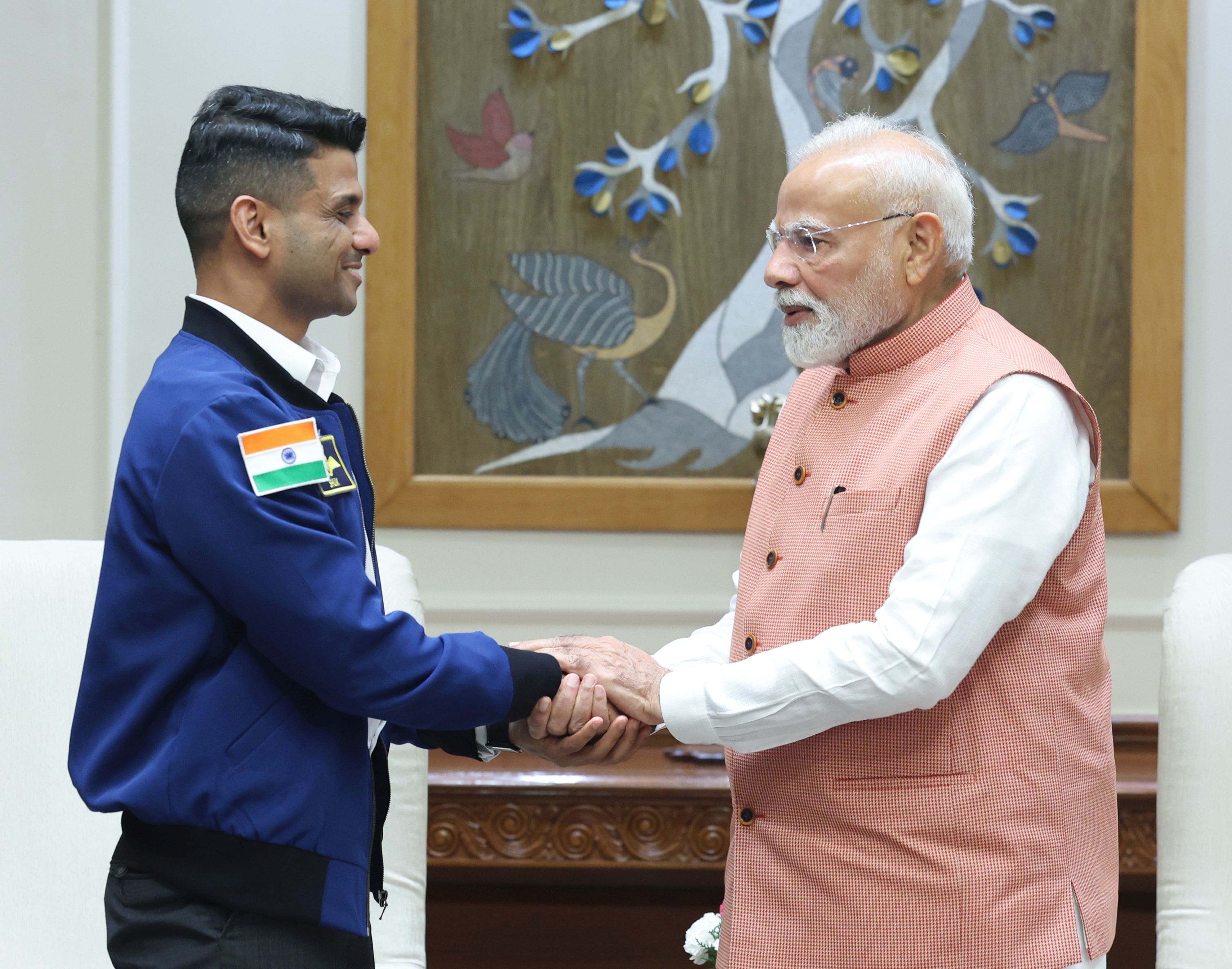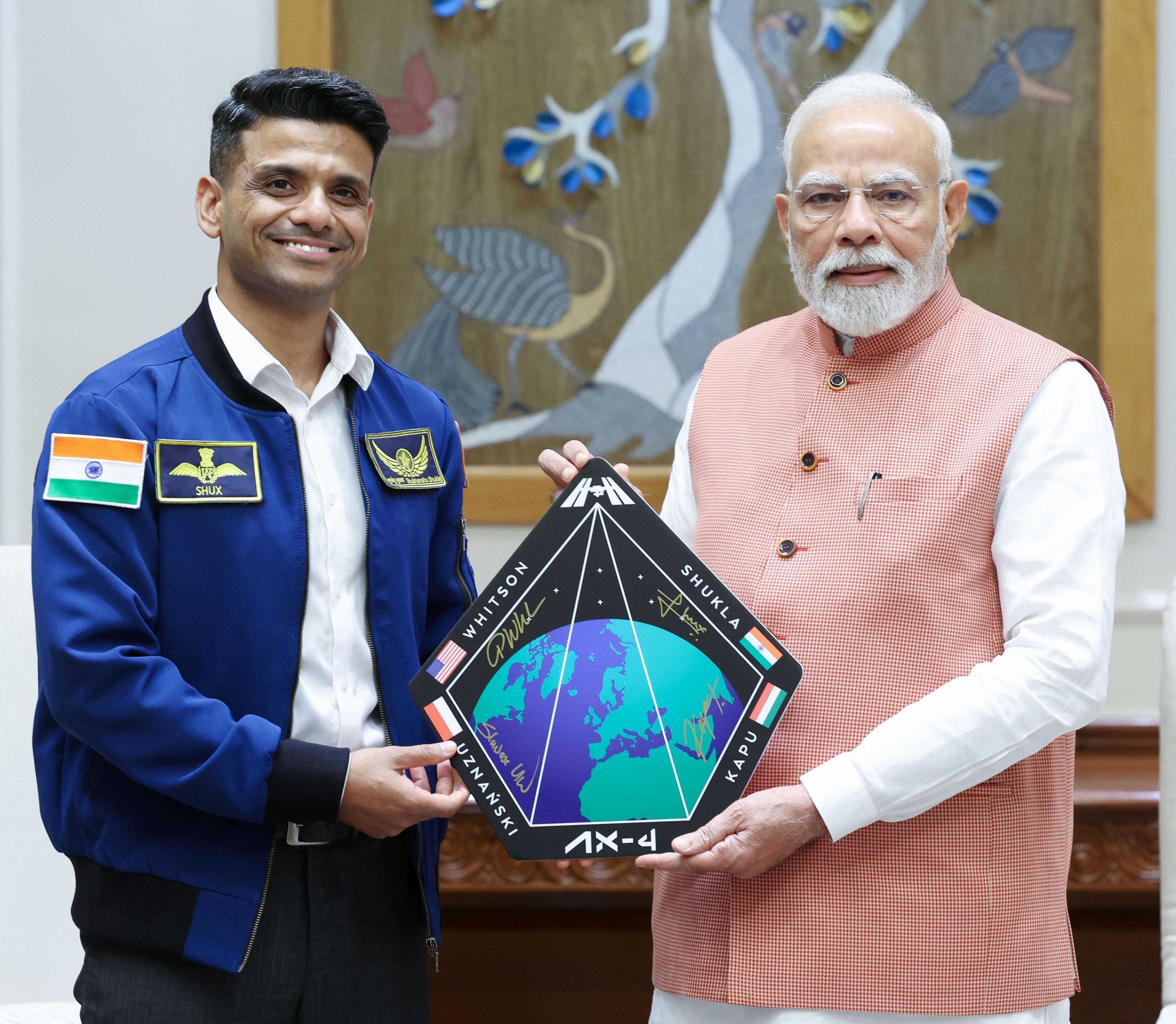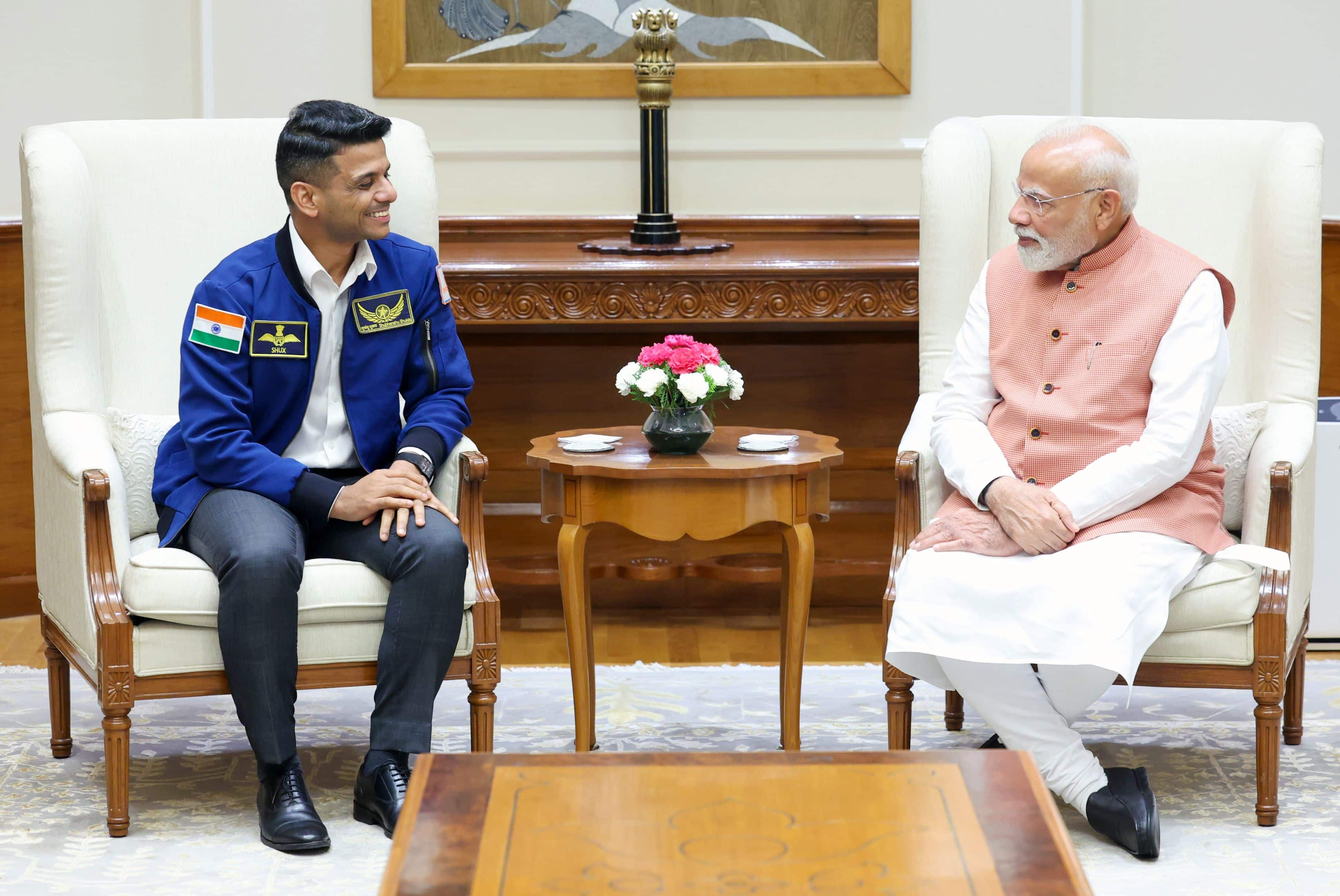Today I have started the programme of cleaning the ghats. The social organizations of this place have assured me that the ghat will be cleaned within a month. After many years, I understand that this gift of cleanliness would be a unique one. Today, I have started and carried forward this task of cleaning the ghats in my constituency of Varanasi. I will nominate 9 people. As per our programme, after cleaning the ghats each person will nominate nine other persons. When I started the cleanliness drive in Delhi I had nominated nine people. Today again I will nominate nine people specially associated with Uttar Pradesh.
One is the Chief Minister of UP Shri Akhilesh ji Yadav.
The Chancellor of The Handicapped University in Chitrakoot, Jagat Guru Swami Rambhadracharya ji.
One of the famous Bhojpuri singer and also our MP from BJP who is also associated with this place Shri Manoj Tiwari ji.
The one to earn his place in the literary world by writing the biography of Lord Krishna, respected Manu Sharma ji.
Cricketer and an inspiration for the youth Shri Mohammad Kaif.
Padmashree awardee and renowned Sanskrit scholar, Guru Devi Prasad Dwivedi ji.
A gift from UP who has created a name for himself by his comedies, Sri Raju Srivastava ji.
The present cricketing icon of the new generation, Sri Suresh Raina ji.
Renowned singer with a distinct identity for his music and a son of Meerut, a singer well acclaimed, Sri Kailash Kher ji.
I have nominated these nine people. I request them to take this cleanliness drive forward and they also nominate nine people under them and take this cycle ahead. Thank you very much to you all.
(The original message was in Hindi, this is the English rendering. Original message remains the authoritative version)
Prime Minister – As you all have returned after undertaking such an extraordinary journey…
Shubhanshu Shukla – Yes, Sir.
Prime Minister – You must be experiencing something different. I mean to say, what do you feel?
Shubhanshu Shukla – Sir, when we go up there, the atmosphere, the environment is entirely different. There is no gravity.
Prime Minister – So, as far as the seating arrangement is concerned, does it remain the same?
Shubhanshu Shukla – Yes, Sir, it remains the same.
Prime Minister – And you have to spend the entire 23–24 hours within that space?
Shubhanshu Shukla – Yes, Sir. But once you reach space, you can unfasten your seat, unstrap your harness, and then you can float around inside the capsule, move about and do things.
Prime Minister – Is there so much space inside?
Shubhanshu Shukla – Not very much, Sir, but there is a little.
Prime Minister – That means it is better than the cockpit of your fighter jet?
Shubhanshu Shukla – Better than that, Sir. But once we arrive there, several changes occur. For example, the heartbeat slows down. These changes happen, but within four to five days the body gets used to it and you become normal there. And when you return, then again the same changes occur. However healthy you may be, you cannot walk immediately upon returning. Personally, I did not feel unwell, I was fine, but still, when I took my first step, I was about to fall, and people had to hold me. Then the second and third steps, although the mind knows one has to walk, the brain takes time to understand that this is a new environment now.
Prime Minister – So it is not merely the training of the body, but more of the training of the mind?
Shubhanshu Shukla – Yes, Sir, it is the training of the mind. The body has strength, the muscles have strength, but the brain has to be rewired, it has to understand again that this is a new environment, and that to walk here, this much effort or strength will be required. That has to be relearned, Sir.
Prime Minister – Who was there for the longest duration, and for how long?
Shubhanshu Shukla – Sir, at present some people have stayed for nearly eight months at a stretch. It is with this mission that such an eight-month duration has begun.
Prime Minister – And those whom you met there…
Shubhanshu Shukla – Yes, some of them will be returning in December.
Prime Minister – And what is the significance of moong and fenugreek?
Shubhanshu Shukla – Very significant, Sir. I was greatly surprised that people were not aware of these things. Food is a very big challenge on a space station. Space is limited, cargo is costly, and there is always an effort to pack maximum calories and nutrition into minimum space. Experiments of all kinds are going on, Sir. To grow these is very simple; they do not require many resources on a space station. Just place a little water in a small dish, leave them, and within eight days sprouts start appearing very well, Sir. I saw them growing on the station itself. These are the secrets of our country, I would say, Sir. As soon as we got the opportunity to do micro-gravity research, these too reached there. Who knows, this might solve our food security problem. For astronauts, it is useful at the station, but if solved there, it could also help us in solving food security challenges here on Earth, Sir.
Prime Minister – This time when an Indian arrived there, what did the others from different countries feel upon seeing an Indian? What did they ask and what did they speak about?
Shubhanshu Shukla – Yes, Sir. My personal experience over the past year is that wherever I went and whomever I met, they were very happy to meet me, very excited to speak, to ask what we were doing and how we were doing it. Most importantly, everyone knew about Bharat's progress in the field of space. Many people were even more excited about Gaganyaan than I was, Sir. They asked me when our mission would launch. In fact, my crewmates even took my signature with a note that whenever Gaganyaan launches, I must invite them, and that soon after they want to sit in our vehicle. I feel, Sir, there is tremendous enthusiasm.
Prime Minister – They used to call you a tech genius. What was the reason?
Shubhanshu Shukla – No, Sir. I think they were just very kind in saying so. But, Sir, my training in the Air Force, and later the training as a test pilot, was very rigorous. When I joined the Air Force, I thought I would not have to study much, but later I had to study a great deal. And after becoming a test pilot, it was practically like an engineering discipline. We were also trained further, our scientists taught us for two, three, even four years. Therefore, Sir, I think we were very well prepared when we went for this mission.
Prime Minister – The homework I gave you—how much progress have you made on it?
Shubhanshu Shukla – There has been very good progress, Sir. People laughed a lot with me afterwards. After that meeting, they even teased me, saying, “Your Prime Minister gave you homework.” I said yes, indeed. And it was very necessary for us to realise this - That was why I went. The mission was successful, Sir, and we have returned. But this mission is not the end, it is the beginning.
Prime Minister – That is what I had said that day as well.
Shubhanshu Shukla – Yes, Sir, you had said that day…
Prime Minister – This is our very first step.
Shubhanshu Shukla – Indeed, Sir, the first step. And the main purpose of this first step was precisely how much we could learn from it and bring back with us.
Prime Minister – Look, the most important task before us will be to have a large pool of astronauts. We should have 40–50 people ready. Until now, perhaps very few children even thought that this is something worth aspiring for. But after your journey, perhaps belief will grow stronger and the sense of attraction towards it will also increase greatly.
Shubhanshu Shukla – Sir, when I was a child, Rakesh Sharma Sir had gone to space in 1984. But the thought of becoming an astronaut never crossed my mind because we had no programme, nothing at all, Sir. But this time, when I was at the station, I interacted with children three times—once in a live event, and twice through radio. And in all three events, Sir, there was always at least one child who asked, “Sir, how can I become an astronaut?” I feel this in itself is a great success for our country, Sir—that in today’s Bharat, the child does not merely dream, he knows it is possible, that there is an option, and that he can indeed become one. And as you said, Sir, it is now my responsibility. I feel I have been greatly privileged to represent my country, and now it is my duty to help as many people as possible to reach this stage.
Prime Minister – Now, the space station and Gaganyaan…
Shubhanshu Shukla – Sir!
Prime Minister – These are our two major missions…
Shubhanshu Shukla – Sir!
Prime Minister – Your experience will be very valuable in the same.
Shubhanshu Shukla – I believe so too, Sir. Especially because of the kind of commitment our government, under your leadership, has shown to the space programme—providing sustained budget every year in spite of failures. For instance, Sir, Chandrayaan-2 was not successful, yet we said we would move forward, and Chandrayaan-3 succeeded. Even after failures, if such support is forthcoming, and the whole world is watching, then certainly, Sir, we have both the capacity and the position to acquire a leadership role in this field. It could be a very powerful tool—if there were a space station led by Bharat, but with participation from other nations too. I also heard your words about Atmanirbharta (self-reliance) in space manufacturing, Sir. All these things are interconnected. The vision you have given us—of Gaganyaan, of BAS, and then of moon landing—is indeed a very great dream, Sir.
Prime Minister – If we accomplish this with self-reliance, it will be very good.
Shubhanshu Shukla – Absolutely, Sir.
Shubhanshu Shukla – I also tried to take several photographs of Bharat from space, Sir. This is where Bharat begins. This triangle is Bengaluru, Sir. This is Hyderabad. And this flash you see, Sir, is lightning. This area is filled with mountains. And this dark area that we crossed is the Himalayas. And above, Sir, those are all stars, and as we crossed, the Sun was rising from behind, Sir.






